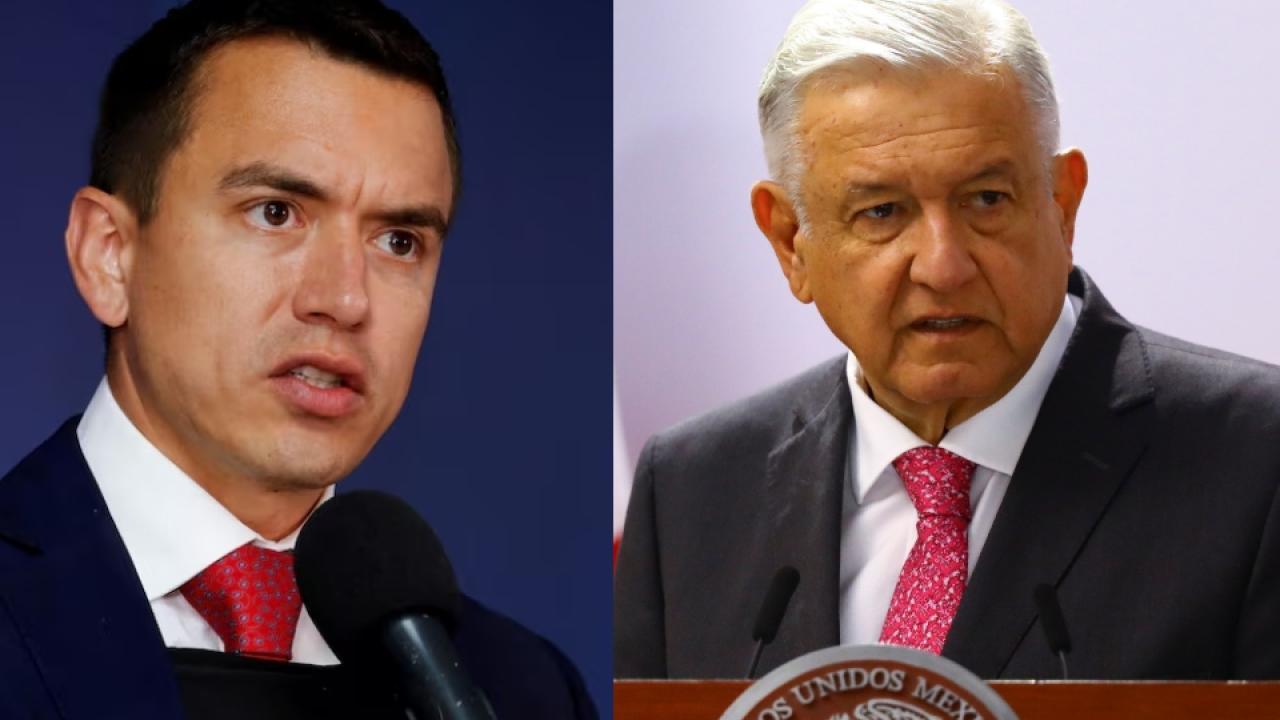
The diplomatic rupture between both countries after the intervention of the Mexican embassy in Quito represents a severe setback for a modest commercial relationship, marked by unequal gains.
This Friday the 5th, when the Ecuadorian police forces broke into the Mexican embassy in Quito, with a view to capturing former vice president Jorge Glas for accusations of corruption, a diplomatic cataclysm was generated. The violation of Mexico's sovereignty by the government of Daniel Noboa raised criticism from neighboring governments and international organizations in the face of an unprecedented event in Latin American diplomacy. Although beyond the speeches of foreign ministries and spokespersons, the rupture of commercial relations between Ecuador and Mexico is a fact that is not insignificant.
To begin with, since July 2018, Ecuador promoted negotiations to join the Pacific Alliance as a full member. During the governments of Lenín Moreno and Guillermo Lasso, special interest was given to the project. In fact, at the end of 2021, Quito had planned to enter the regional bloc and sign a Free Trade Agreement (FTA) with Mexico for the following year.
However, the dialogue stalled due to political disagreements between the then president of Ecuador, Guillermo Lasso, and the president of Mexico, Andrés Manuel López Obrador. The last straw came in December 2022: AMLO revealed that he was willing to sign an FTA with Ecuador, but without including shrimp and bananas as export products. However, this setback does not compare to the intervention of the diplomatic headquarters and the consequent breaking of diplomatic relations between both countries.
In general terms, the commercial exchange between the feuding partners is modest. For example, in 2023, Ecuador's share of Mexico's exports was just 0.1%. Likewise, Ecuador's contribution to Mexico's imports amounted to a meager 0.038%. If we consult official figures, Banxico indicates that exports from Mexico to Ecuador reached US$595 million. While imports from Ecuador were US$228 million, resulting in a trade balance favorable to Mexico, with a surplus of US$368 million.
Regarding the products exchanged between these Spanish-speaking countries, medicines for therapeutic uses, malt extracts, as well as sales of automobiles and cargo vehicles (Mexico) stand out. Regarding Ecuador, it mainly exports cocoa and canned fish to the Aztec country.
Currently, the status of bilateral trade is reserved: initially, Quito announced that trade relations with Mexico City were maintaining without problems. However, on Thursday the 11th, the Secretary of Foreign Affairs of Mexico, Alicia Bárcena, stated that they had been suspended. Given the magnitude of her words, the chancellor clarified that she was referring to the FTA negotiations with Ecuador. Immediately afterwards, he announced a possible demand to the United Nations for the South American State to be expelled as a member.
This Monday the 15th, while diplomatic relations continue to be broken, the Chamber of Industries and Production of Ecuador (CIP) published a report that reflects the recent decline in direct investment from Mexico in Ecuador. If in 2022, the sum amounted to US$37.3 million, for the following year, a notable decrease of 82% was recorded, which led Mexican investment to reach US$6.8 million. The crisis would only aggravate the already weak bond between both countries.
In this case, the Ecuadorian Federation of Exporters (Fedexpor) confirmed that although Ecuador and Mexico maintain bilateral trade, to the point that the former exports close to US$ 4 million in non-oil products to the latter's market.
Likewise, commercial ties are more beneficial for Mexican companies, because more is imported than exported. As an example, in 2023, non-oil trade between Mexico and Ecuador left an unfavorable balance of US$ 499 million. Ultimately, although they have never been the closest partners, Daniel Noboa's risky move has eliminated the possibility of his country moving towards regional integration with initiatives such as the Pacific Alliance. This is ironic, considering that Ecuador has made significant gains in trade opportunities by negotiating with more distant partners such as China and South Korea.









